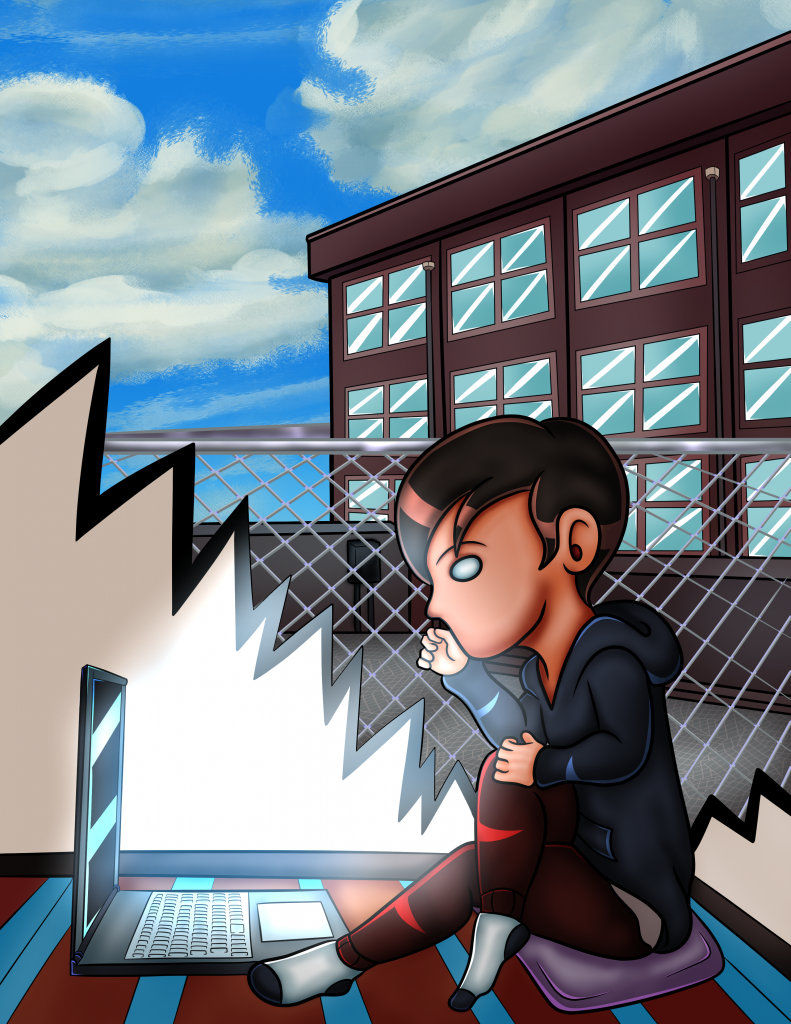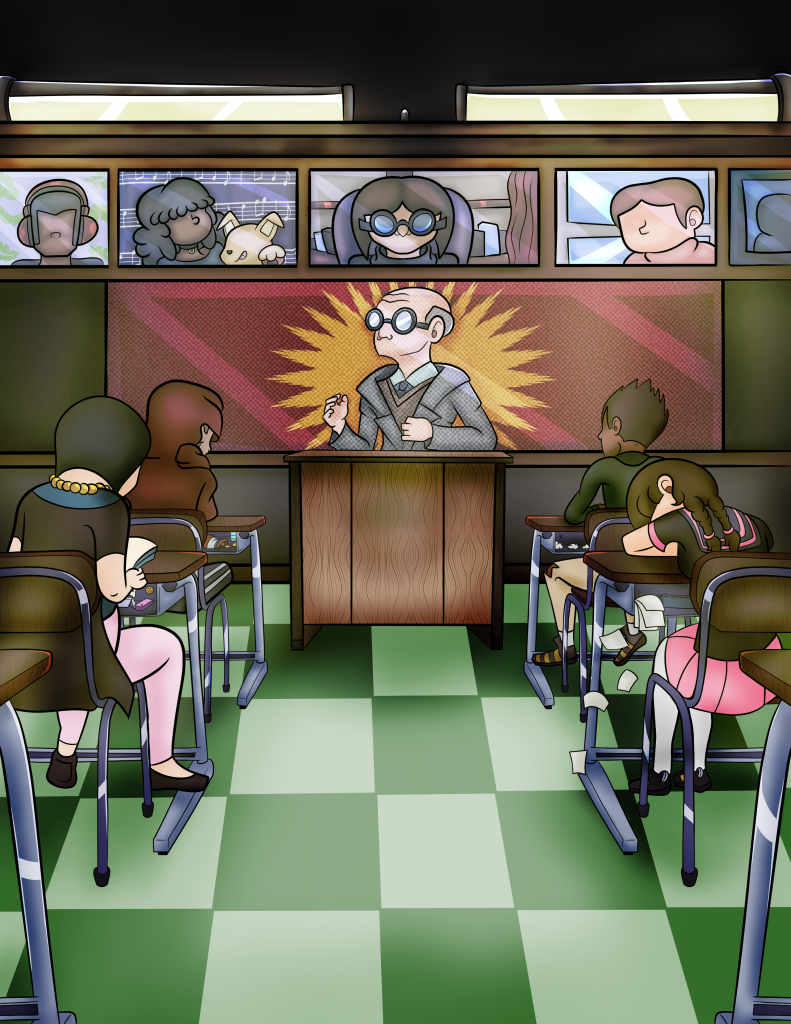The current pandemic has given rise to a unique concept of schooling for students across schools and nations alike. Even though each country has their own unique schooling system, what is amusing is how they’ve all have had to deal with this common quandary of having students learn online through “Virtual Schooling.”
The only other option was to risk going to school and face the possibility of getting the covid-19 virus.
Schools across the US did a commendable job in kick-starting this new model within a short span of time. Students were supplied with laptops by the schools and just needed a stable internet connection to continue from where they left off.
However, the question that arises is whether virtual schooling worked or not. Is it sustainable? What can we do better to be more prepared in case of a similar future contingency? Let us weigh in.
Current Model
Schools did everything to ensure students continued their education from the comfort of their homes without having to worry about getting the virus. Parents and teachers were relieved as well. It may have begun as a smooth transition, with many students even enjoying the idea of not going to school and especially getting that extra sleep.
Some students were jubilant that they did not have to follow a regimen or face a potential bully in school, while others were unhappy about not being able to meet their friends.
The virtual schooling was simply a modified version of their earlier routine, and so it should not have been too hard. Except it was! Eventually, it took an emotional toll on the fragile and not fully developed brains of the children. They say, “Children’s brains are like sponges,” absorbing every little bit around them; absorb, they did, a little too much!
What Went Wrong?
A whole lot went wrong, the foremost being that the pandemic continued indefinitely, not to mention the catastrophe it caused the world over.
Students, who are meant to have enriching life experiences that ultimately lead to their personal growth, were being denied that very basic foundation. A scheduled daily routine that they were so reliant on was thrown off abruptly. That sense of grounding began to fade away. A worldly perspective on things that also comes with social interaction was now coming entirely from social media. Being home, staying inactive, spending more time on gadgets, and lack of supervision were all proving to be gravely detrimental to their mental health. Concentration took a nosedive.
For parents, this was equally tough, having to manage their work schedules and their children simultaneously. Teachers had the tall task of adapting to the online teaching mode at the same time, keeping students engaged behind a screen.
Soon, students began to slack! Grades slipped and morale took a huge hit! Parents were forced to send their children back to school, not able to bear their rapid downfall in front of their eyes.

How Can Virtual Schooling Be More Effective?
This needs a lot of thinking and planning and ought to be dealt with with utmost seriousness.
An important consideration in virtual schooling is how to engage students. It is a well-known fact that children have a short attention span. It takes a lot of energy and tactics on the part of the teachers to manage students, considering they all come from different socio-economic backgrounds.
Discipline plays a major role in a student’s life. That is why there are rules in schools and rules at home.
Children learn more effectively when there is better interaction; innovative and new modes of interaction are impactful and fun.
To summarize, it boils down to these key goals – Engage, Interact and Supervise.
Modifications are required now more than ever in the current education system. Strategizing, planning, and implementing should start or should have started yesterday. Evaluating different modes of online teaching, including captivating multimedia tools and technology.
Rigorously engaging students with class quizzes, surprise tests, enthralling projects, incentives, appreciations, feedback, and compulsory participation from each student will likely demand more attention and alertness from their end.
Including meditation/breathing techniques and physical exercise in the daily curriculum could work wonders with stress levels and anxiety. Adults have taken to online fitness classes with a passion. There is no reason why it couldn’t be tried with the school-going population, during or in between classes. Play a Taylor Swift song, ask them to twist and shout and see what they do!! The energy level could become radically upbeat.
Whilst schools are virtual if the hours are reduced, that can benefit and lead to higher productivity. Otherwise, the school hours can get too long to be just sitting in one place and staring at the screen.

The use of interactive applications and showing videos, graphics, appealing visuals, and even podcasts in classes all can break the monotony of plain lectures. As an example, something as simple as getting students to present simple projects using the animation feature in PowerPoint, and encouraging constructive feedback from other students, could be surprisingly effective and a confidence booster.
Introducing movie days, online picnics, debates, etc., and engaging students in healthy discussions on interesting topics, are all small ways of ensuring their attendance and interest in virtual schooling.
Finally, the importance of discipline cannot be emphasized enough. Rules around attendance, project submissions, and interpersonal behavior, when tied to severe consequences which students care for, are bound to be effective.
This requires collaboration between the teachers and the parents, and it also requires tactics because kids these days are smarter than we think. Stricter policies are required against the use of social media or any other online platform in between classes.
The significance of a teacher’s continuous personal attention or a parent’s constant vigilance cannot be undermined. Weekly check-in with the school counselor could be helpful too. Resources are there. They either need to be utilized or diverted in the right direction. It comes down to strategizing.
Humans are known to adapt fast to changes. Ours is an ever-changing world in terms of the climate, the environment, the economy, and the culture, and we are constantly adapting. We have adapted to the pandemic, too, to a certain extent, albeit with a lot of struggle and pitfalls.
In the end, however, life has to go on, and we have to move on, and children are likely to move on quicker than anybody else. Sustainable or not, virtual learning could be a big part of every student’s future. Hence, preparedness and planning for a more robust system cannot be sidelined or swept under the rug anymore.
Reference:
- Usatoday.com, Erin Richards, Dec 13, 2020. “Students are falling behind in online school. Where’s the COVID-19 ‘disaster plan’ to catch them up?” https://www.usatoday.com/in-depth/news/education/2020/12/13/covid-online-school-tutoring-plan/6334907002/






















